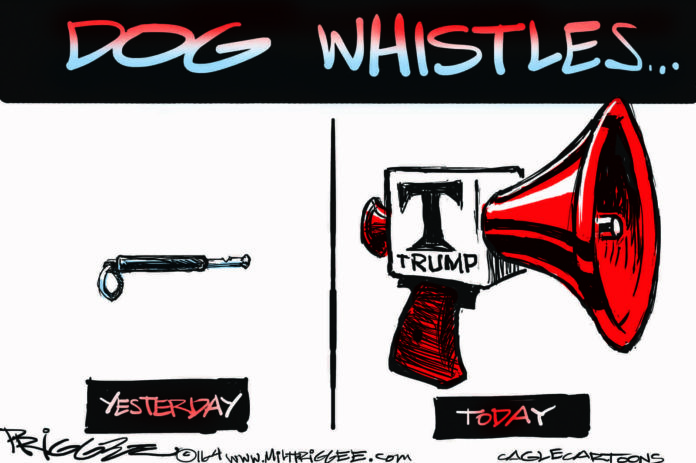BY TED RALL
It began with the global economic crisis.
All around the world, millions of people who had nothing to do with the stock market crash – who didn’t earn enough money to save, much less invest, that much less speculate – lost everything nevertheless. They lost their jobs, then, in short order, their homes. They were scared.
The failure of democratic governance transformed their completely understandable fear into savage, uncontrolled anger.
Presidents and parliaments dithered. Part of the blame lies with the Constitution. It provided for a strong executive branch. Rather than grease the skids of government, it prompted members of the congress to dig in their heels, blocking every initiative they could because it was the only way to stay relevant.
The politicians knew they had a terminal systemic crisis on their hands, but they couldn’t agree how to respond. So they didn’t. The misery deepened.
Gridlock reigned.
The economy recovered. A little. Not much. But almost all the gains fell into the pockets of the wealthy and well-connected. Almost everyone else felt left out. They seethed.
Seeing opportunity amid the armies of the alienated and dispossessed, the perennial almost-candidate of the nationalist, nativist far-right began campaigning in earnest. Breaking all the rules of conventional campaigning, he drew huge crowds with a simple message:
Believe me.
Trust me, he assured his audiences, and I will make the country great again.
He was short on specifics and liberal with insults. Idiots, he called the incumbent politicians. They were losers – losers whose stupidity had betrayed a once-great country.
“People from this country can’t find a job. They can’t earn a decent living,” he ranted. “Foreigners must be expelled so our people can work!”
Forward-looking leaders within the establishment parties worried about the growing popularity of this strongman in the making. His intentions, after all, were dangerously radical – and they’d been published years before in a bestselling book. He was, he said himself, a “militarist.” Wars, fragmentation, scapegoating were all in the cards if he were allowed to come to power. But the parties weren’t motivated to respond. The system couldn’t save itself.
Some establishment analysts thought he was a flash in the pan, a buffoon whose appeal would fade in good time of its own accord. “The ranting clown who bangs the drum outside the … circus,” The Guardian called him.
The future tyrant’s natural ideological opposition couldn’t get it together. During key elections, they split their votes between the socialist Left and moderate liberals. Ultimately, however, historians blamed the Right most of all, for failing to rein in one of their own.
Traditional conservatives had played a dangerous game for years, using political “dog whistles” to appeal to citizens’ bigoted views of foreigners and ethnic minorities. As the economy worsened, this approach became more effective. Conservatives doubled down, setting the stage for what came next.
What the old guard didn’t understand was, that given a choice between half-hearted racism and the genuine article, the electorate would choose the authentic candidate. “He tells it like it is, and we need that now in a president,” 44% of voters told a major newspaper.
The conservative establishment faced a choice, too: support a candidate of the left, or forsake true conservatism in favor of a fascist. To a man, they went with the fascist.
A tone of increasing violence accompanied the demagogue’s rise in the polls. Not only did he personally condone violence against his movement’s political opponents, his party offered its lawyers to defend partisans arrested for beatings in its name. Even his close associates were implicated in violent assaults; when they were, the leader stood by them. “I think it’s a very, very sad day in this country when a man could be destroyed over something like that,” he said.
The aging president was reluctant to issue an outright condemnation. “Troubling,” he called the gathering storm clouds.
The Leader’s authoritarian movement attracted a plurality of the vote – yet he wasn’t popular enough to consolidate a simple majority. Had his opponents set aside their personal ambitions and ideological biases, and united in favor of the national good, he could have been denied the chancellorship.
Alas, twelve years later, all would be ruins.
– Ted Rall, syndicated writer and the cartoonist for ANewDomain.net and Skewed.net, is the author of Bernie, a biography written with the cooperation of Democratic presidential candidate Bernie Sanders.
Creators.com








